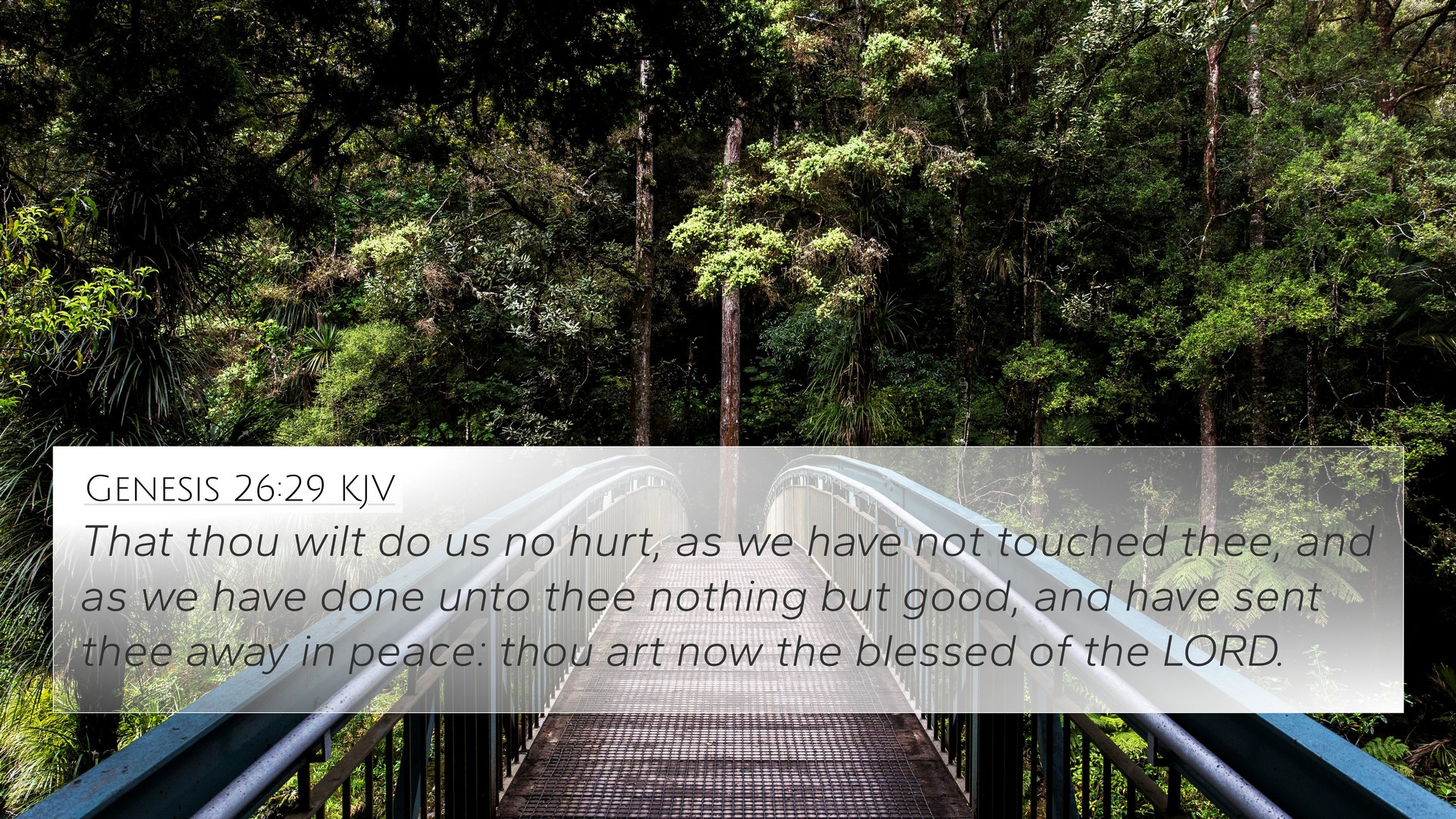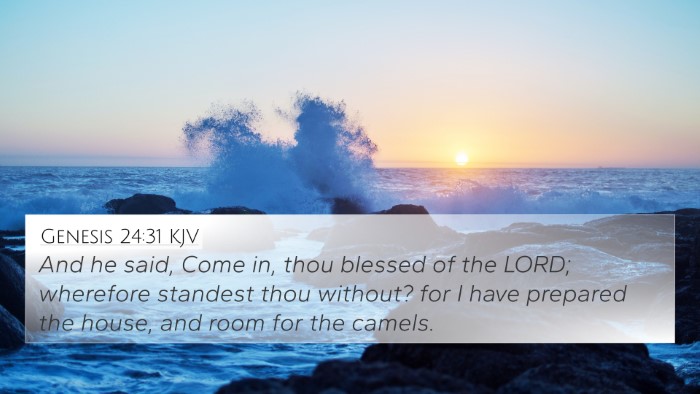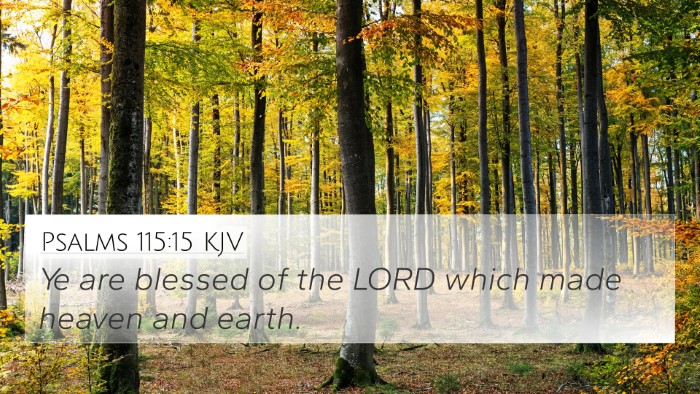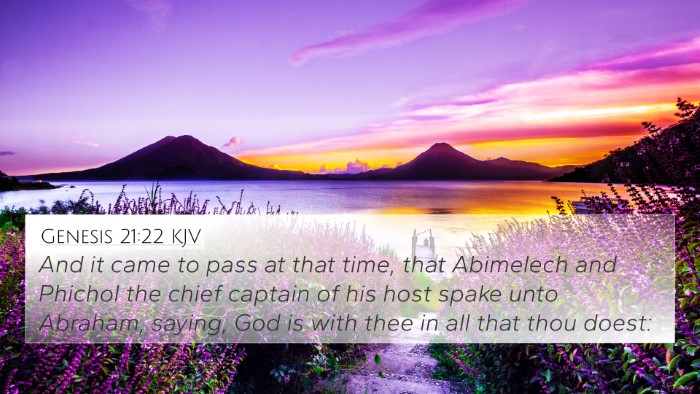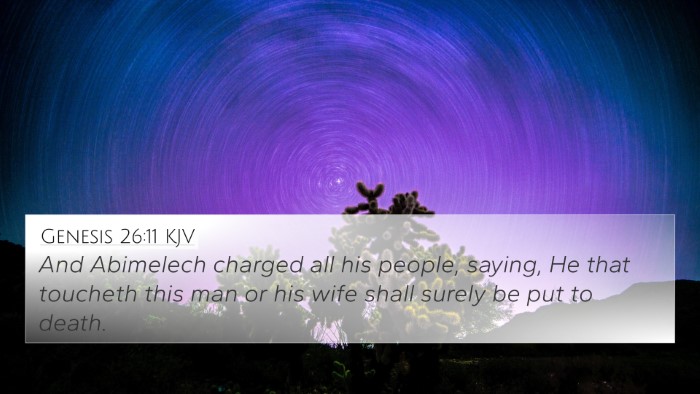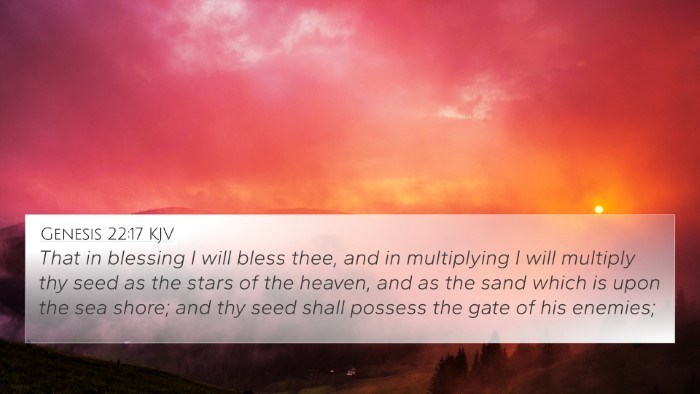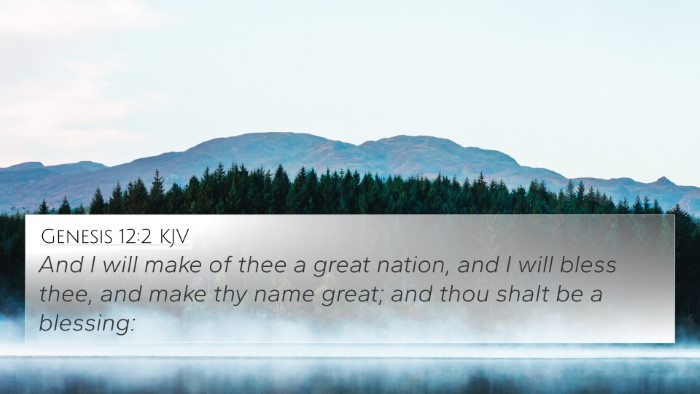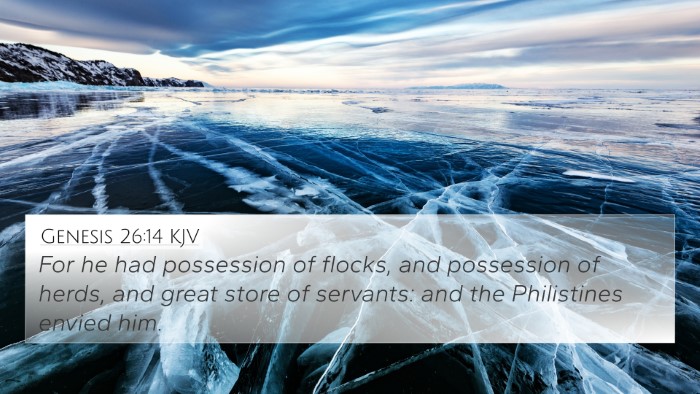Understanding Genesis 26:29
Genesis 26:29 states: “We saw certainly that the LORD was with you: and we said, Let there be now an oath between us, even between us and you, and let us make a covenant with you.” This verse reflects a moment of recognition and acknowledgment of God's presence in Isaac's life, leading to a significant commitment between him and the Philistines.
Meaning and Insights
The broader context of Genesis 26 revolves around Isaac's struggles and triumphs in a foreign land, where he faces various challenges, including famine, conflict over wells, and familial tension. This verse showcases the culmination of those interactions, emphasizing the realization of God's favor upon Isaac.
- Divine Presence: Matthew Henry notes that Isaac's success provoked the Philistines to acknowledge the divine favor he enjoyed. Their recognition indicates that even outsiders could see the hand of God upon him.
- Covenants in Biblical Texts: Adam Clarke elaborates on the significance of covenants in the ancient Near Eastern context. The Philistines sought to establish peace through a formal agreement, indicative of a desire for stability and mutual respect.
- Role of Oaths: Albert Barnes points out that oaths signify a serious commitment. The Philistines sought to ensure that Isaac would not act against them out of fear of reprisal, highlighting themes of trust and relationship-building in scripture.
Thematic Connections
When examining Genesis 26:29, various thematic connections arise. The idea of God's presence in the lives of His people resonates through different biblical narratives. Here are some verses that reflect similar principles:
- Exodus 3:12: “And he said, Certainly I will be with thee.” This verse affirms God’s promise of accompanying His chosen ones.
- Deuteronomy 31:6: “Be strong and of a good courage, fear not, nor be afraid of them: for the LORD thy God, he it is that doth go with thee.” This reinforces the assurance of God's constant presence.
- 1 Samuel 16:18: “...and the LORD is with him.” Acknowledgment of God's favor, similar to Isaac's experience, this reflects a divine influence over one’s life.
- Psalm 23:4: “Yea, though I walk through the valley of the shadow of death, I will fear no evil: for thou art with me.” A profound declaration of divine companionship.
- Isaiah 43:2: “When thou passest through the waters, I will be with thee.” This verse provides assurance of God’s protection in difficult times.
- Matthew 28:20: “...I am with you always, even unto the end of the world.” This promise resonates with the continuous presence of God in the lives of believers.
- Hebrews 13:5: “...I will never leave you, nor forsake you.” Emphasizing the same truth of God’s unwavering commitment to His people.
Comparative Analysis
A comparative analysis of Genesis 26:29 with other verses can promote deeper understanding. The appeal to faithfulness found in covenant phrases mirrors many scriptural instances where God vows His allegiance to His people.
- Comparative Study of Covenant Practices: Exploring the covenants made by figures like Abraham (Genesis 15:18) and David (2 Samuel 23:5) can highlight the continuity of God’s promises.
- Linking Themes of Peace and Trust: Connection between Genesis 26:29 and Proverbs 3:5-6, which encourages trust in the LORD for guidance and direction.
- Moral Lessons from Recognizing Divine Blessings: This can also be linked with James 1:17, stating that every good gift comes from God.
Tools for Cross-Referencing
Utilizing Bible concordance and cross-reference guides can enhance Bible study, allowing individuals to identify connections between disparate texts effectively. Comprehensive Bible cross-reference materials serve as invaluable resources for finding themes and truths that stretch beyond single verses.
Conclusion
Genesis 26:29 is not merely a historical account; it conveys principles relevant today, such as God’s faithfulness and the importance of agreements in relationships. Through effective cross-referencing, believers can explore the depths of Scripture, revealing inter-Biblical dialogues and connections that elucidate God’s overarching narrative.
